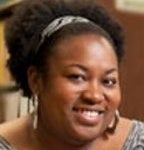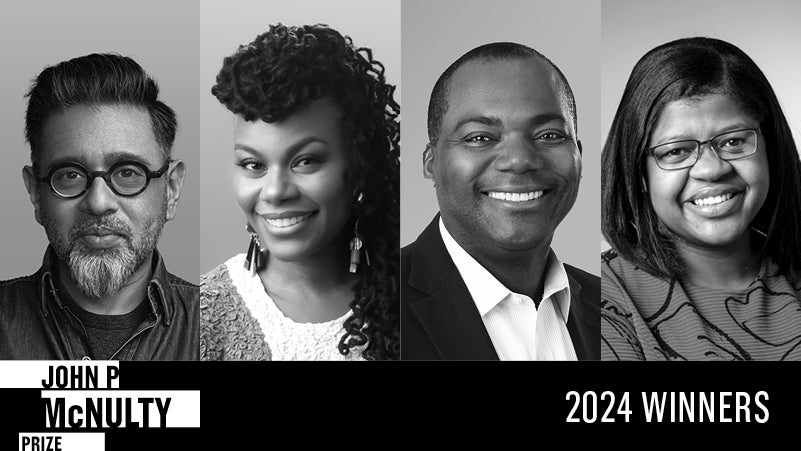2020 has been a challenging year across the globe. As a result of the pandemic, economic instability, and societal reckoning with inequality, mental health issues—from anxiety to depression to loneliness—are on the rise across various populations. This unprecedented moment underscores the innate need for humans to connect with one another, share our experiences, and form resilient communities. As we look toward the future, how will we create and maintain meaningful social connections? In some cases, technologies, like social media or AI chatbots, can help bridge persons and communities. In others, they may amplify feelings of isolation and loneliness. This is an in-depth conversation on the future of human connection and the potential impact of technology on meaningful relationships.
We are joined by:
- Dan Buettner, Author & Explorer, Blue Zones
- Brittney Cooper, Assistant Professor, Rutgers University
- Robin Hewings, Director of Campaigns, Policy and Research, Campaign to End Loneliness
- Ruth Verhey, Director of Programs & Senior Psychologist, Friendship Bench Zimbabwe
- Vivian Schiller, Executive Director, Aspen Digital
******
 Dan Buettner is an explorer, National Geographic Fellow, award-winning journalist and producer, and New York Times bestselling author. He discovered the five places in the world – dubbed blue zones– where people live the longest, healthiest lives. His articles about these places in The New York Times Magazine and National Geographic are two of the most popular for both publications. Buettner now works in partnership with municipal governments, large employers, and health insurance companies to implement Blue Zones Projects in communities, workplaces, and universities. Blue Zones Projects are well-being initiatives that apply lessons from the Blue Zones to entire communities by focusing on changes to the local environment, public policy, and social networks. The program has dramatically improved the health of more than 5 million Americans to date. Buettner also holds three Guinness World Records in distance cycling.
Dan Buettner is an explorer, National Geographic Fellow, award-winning journalist and producer, and New York Times bestselling author. He discovered the five places in the world – dubbed blue zones– where people live the longest, healthiest lives. His articles about these places in The New York Times Magazine and National Geographic are two of the most popular for both publications. Buettner now works in partnership with municipal governments, large employers, and health insurance companies to implement Blue Zones Projects in communities, workplaces, and universities. Blue Zones Projects are well-being initiatives that apply lessons from the Blue Zones to entire communities by focusing on changes to the local environment, public policy, and social networks. The program has dramatically improved the health of more than 5 million Americans to date. Buettner also holds three Guinness World Records in distance cycling.
 Brittney Cooper is co-editor of The Crunk Feminist Collection and an Assistant Professor at Rutger’s University. She is author of Beyond Respectability: The Intellectual Thought of Race Women and Eloquent Rage: A Black Feminist Discovers Her Superpower. Along with work on black female public intellectuals, Dr. Cooper studies Black women’s organizations as sites for the production of intellectual thought. Dr. Cooper is co-founder along with Dr. Susana Morris of the Crunk Feminist Collective, a feminist of color scholar-activist group that runs a highly successful blog. The CFC blog was named as one of the top 25 Black blogs to watch in 2012 by The Root.com and one of the top “Lady Blogs” by New York Magazine in November 2011. The Collective also does speaking tours, conducts workshops, and engages in a range of activist causes related to women’s issues. Professor Cooper blogs for the CFC as “Crunktastic.” A native of Ruston, Louisiana, Dr. Cooper considers herself a small-town Southern girl at heart, which explains her affinity for soul food, crunk music, and warm weather.
Brittney Cooper is co-editor of The Crunk Feminist Collection and an Assistant Professor at Rutger’s University. She is author of Beyond Respectability: The Intellectual Thought of Race Women and Eloquent Rage: A Black Feminist Discovers Her Superpower. Along with work on black female public intellectuals, Dr. Cooper studies Black women’s organizations as sites for the production of intellectual thought. Dr. Cooper is co-founder along with Dr. Susana Morris of the Crunk Feminist Collective, a feminist of color scholar-activist group that runs a highly successful blog. The CFC blog was named as one of the top 25 Black blogs to watch in 2012 by The Root.com and one of the top “Lady Blogs” by New York Magazine in November 2011. The Collective also does speaking tours, conducts workshops, and engages in a range of activist causes related to women’s issues. Professor Cooper blogs for the CFC as “Crunktastic.” A native of Ruston, Louisiana, Dr. Cooper considers herself a small-town Southern girl at heart, which explains her affinity for soul food, crunk music, and warm weather.
 Robin Hewings is the Director of Campaigns, Policy and Research at the Campaign to End Loneliness. He leads a team with a presence in all four UK nations driving action on loneliness through research, convening and influencing. He chaired the advisory group for the Campaign’s recent report ‘The Psychology of Loneliness’. Before working at the Campaign he focussed on health: putting together evidence and communications to make change on issues such as the plain packaging of tobacco and the prioritisation of diabetes in the National Health Service.
Robin Hewings is the Director of Campaigns, Policy and Research at the Campaign to End Loneliness. He leads a team with a presence in all four UK nations driving action on loneliness through research, convening and influencing. He chaired the advisory group for the Campaign’s recent report ‘The Psychology of Loneliness’. Before working at the Campaign he focussed on health: putting together evidence and communications to make change on issues such as the plain packaging of tobacco and the prioritisation of diabetes in the National Health Service.
 Ruth Verhey is a clinical psychologist, the co-developer of the Friendship Bench program and also works as psychotherapist. She is part of the Friendship Bench (FB) management team and Co-PI on all FB research projects. Ruth holds a PhD from the University of Stellenbosch, South Africa. Her research focuses on easily accessible and affordable care for common mental disorders, community-based interventions, group support, the well-being of counselors as well as PTSD in people who live with HIV. Originally from Germany, she has lived in Canada and Colombia and has been working in Zimbabwe since 2004. She is an EMDR consultant and runs a private practice.
Ruth Verhey is a clinical psychologist, the co-developer of the Friendship Bench program and also works as psychotherapist. She is part of the Friendship Bench (FB) management team and Co-PI on all FB research projects. Ruth holds a PhD from the University of Stellenbosch, South Africa. Her research focuses on easily accessible and affordable care for common mental disorders, community-based interventions, group support, the well-being of counselors as well as PTSD in people who live with HIV. Originally from Germany, she has lived in Canada and Colombia and has been working in Zimbabwe since 2004. She is an EMDR consultant and runs a private practice.
 Vivian Schiller is Executive Director of Aspen Digital. Over the last 30 years, Vivian has held executive roles at some of the most respected media organization in the world. Those include: President and CEO of NPR; Global Chair of News at Twitter; General Manager of NYTimes.com; Chief Digital Office of NBC News; chief of the Discovery Times Channel, a joint venture of The New York Times and Discovery Communications; and head of CNN documentary and long form divisions. Documentaries and series produced under her auspices earned multiple honors, including three Peabody Awards, four Alfred I. DuPont-Columbia University Awards, and dozens of Emmys. Schiller is a member of the Council on Foreign Relations; and a Director of the Scott Trust, which owns The Guardian. She is also strategic advisor to Craig Newmark Philanthropies.
Vivian Schiller is Executive Director of Aspen Digital. Over the last 30 years, Vivian has held executive roles at some of the most respected media organization in the world. Those include: President and CEO of NPR; Global Chair of News at Twitter; General Manager of NYTimes.com; Chief Digital Office of NBC News; chief of the Discovery Times Channel, a joint venture of The New York Times and Discovery Communications; and head of CNN documentary and long form divisions. Documentaries and series produced under her auspices earned multiple honors, including three Peabody Awards, four Alfred I. DuPont-Columbia University Awards, and dozens of Emmys. Schiller is a member of the Council on Foreign Relations; and a Director of the Scott Trust, which owns The Guardian. She is also strategic advisor to Craig Newmark Philanthropies.

